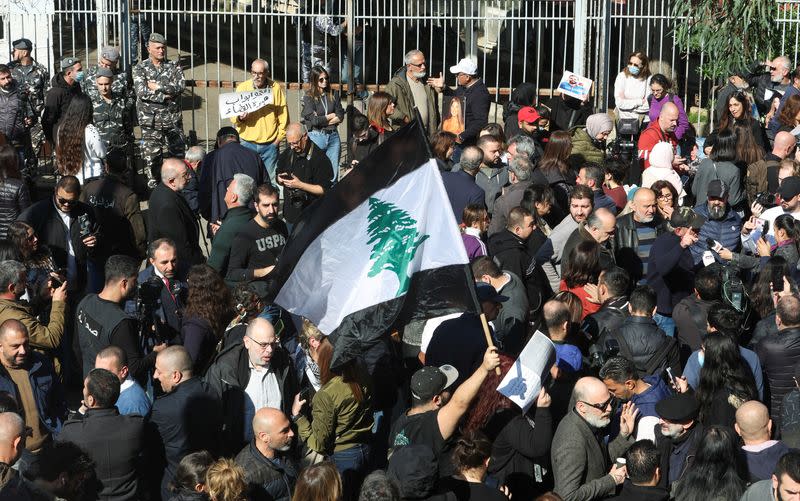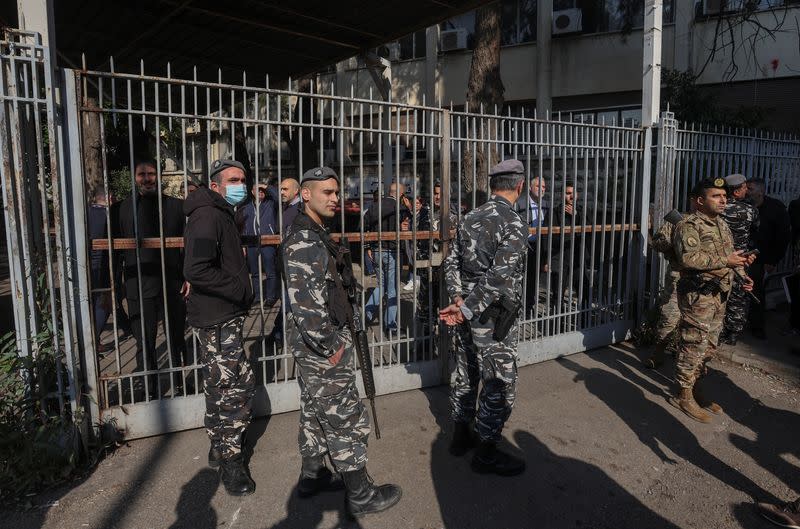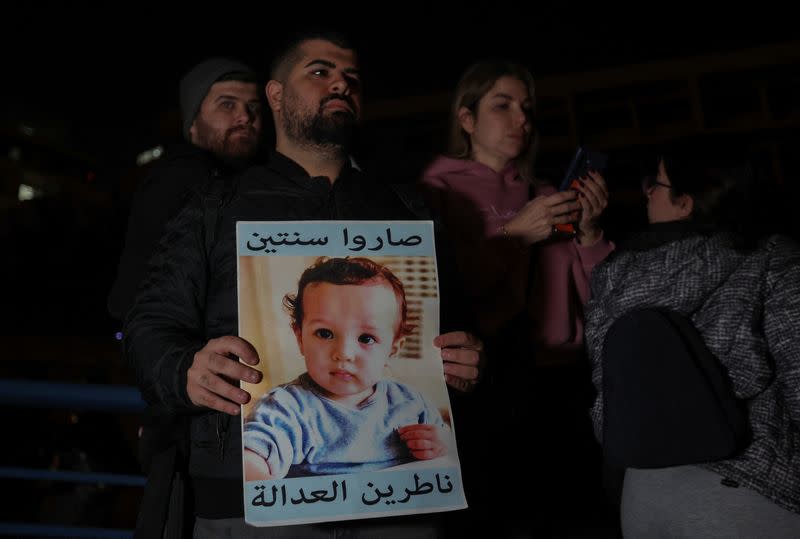Lebanese protest as fate of blast probe hangs in balance
By Timour Azhari, Ahmad Al-Kerdi and Aziz Taher
BEIRUT (Reuters) -More than 200 people protested outside Lebanon's justice palace on Thursday over efforts to derail an investigation into the deadly 2020 Beirut port explosion, as top judges cancelled a meeting to discuss the fate of the inquiry.
Judge Tarek Bitar announced on Monday he was resuming his investigation into the blast that killed more than 220 people, after a 13-month suspension caused by legal wrangling and high-level political pressure.
But Lebanon's top public prosecutor Ghassan Oweidat objected, filed charges against Bitar for allegedly mishandling the inquiry, and released the remaining 17 detainees still held over the investigation.
On Thursday, Oweidat - himself charged by Bitar this week with unspecified offences - issued an additional decision telling the judiciary not to accept any orders, warrants or other documents issued by Bitar.
"He is not above God," Oweidat told Reuters, referring to Bitar. He said he considered Bitar's actions this week to have constituted "a big mistake".
Oweidat also said the Supreme Judicial Council would cancel its afternoon meeting to discuss the future of the blast inquiry due to the protests and "interference" by lawmakers, but did not set a time or date for a new session.
Several members of parliament had earlier met with the justice minister and the head of the supreme judicial council.
The explosion, one of the largest non-nuclear blasts on record, was caused by hundreds of tonnes of ammonium nitrate that had been unloaded at the port in 2013.
'JUDICIAL SCANDAL'
Families of those killed in the blast, members of parliament and other Lebanese flocked to Lebanon's justice palace on Thursday to demand Bitar be allowed to carry on.
Some protesters tried to break in, but the doors were sealed and heavily guarded. Inside, Oweidat's office was blocked off by a cluster of police with shields and helmets.
"This is a judicial scandal," lawyer Ali Abbas told Reuters. "Families of the victims are being wronged - there is complete disregard for this crime."
To many Lebanese, the port disaster symbolised the wider corruption, mismanagement and unaccountability of a ruling elite that also steered Lebanon into a devastating financial collapse.
In turn, they see in Bitar a flicker of hope that justice may one day be served in a country where impunity has long been the norm.
George Bezdjian, whose daughter Jessica died when the blast ripped through the hospital where she was working as a nurse, pledged the families would keep protesting in support of Bitar.
"We have nothing to lose. We already lost the most precious things we have," he said.
Those protesting said they feared Bitar could be removed from the case or effectively sidelined if a supplementary judge is appointed to work alongside him.
Bitar told Reuters he would keep working until he could produce an indictment report and that Oweidat "had no right" to file a charge or release detainees because Oweidat himself had been charged over the explosion.
This week's developments have set up a tug-of-war in Lebanon's judiciary, where politicians have influence over many appointments.
Caretaker Prime Minister Najib Mikati said on Wednesday that splits in the judiciary could have "dangerous consequences" if left unresolved.
(Reporting by Timour Azhari, Laila Bassam, Ahmad Al-Kerdi and Aziz Taher; Writing by Maya Gebeily; Editing by Christina Fincher)






